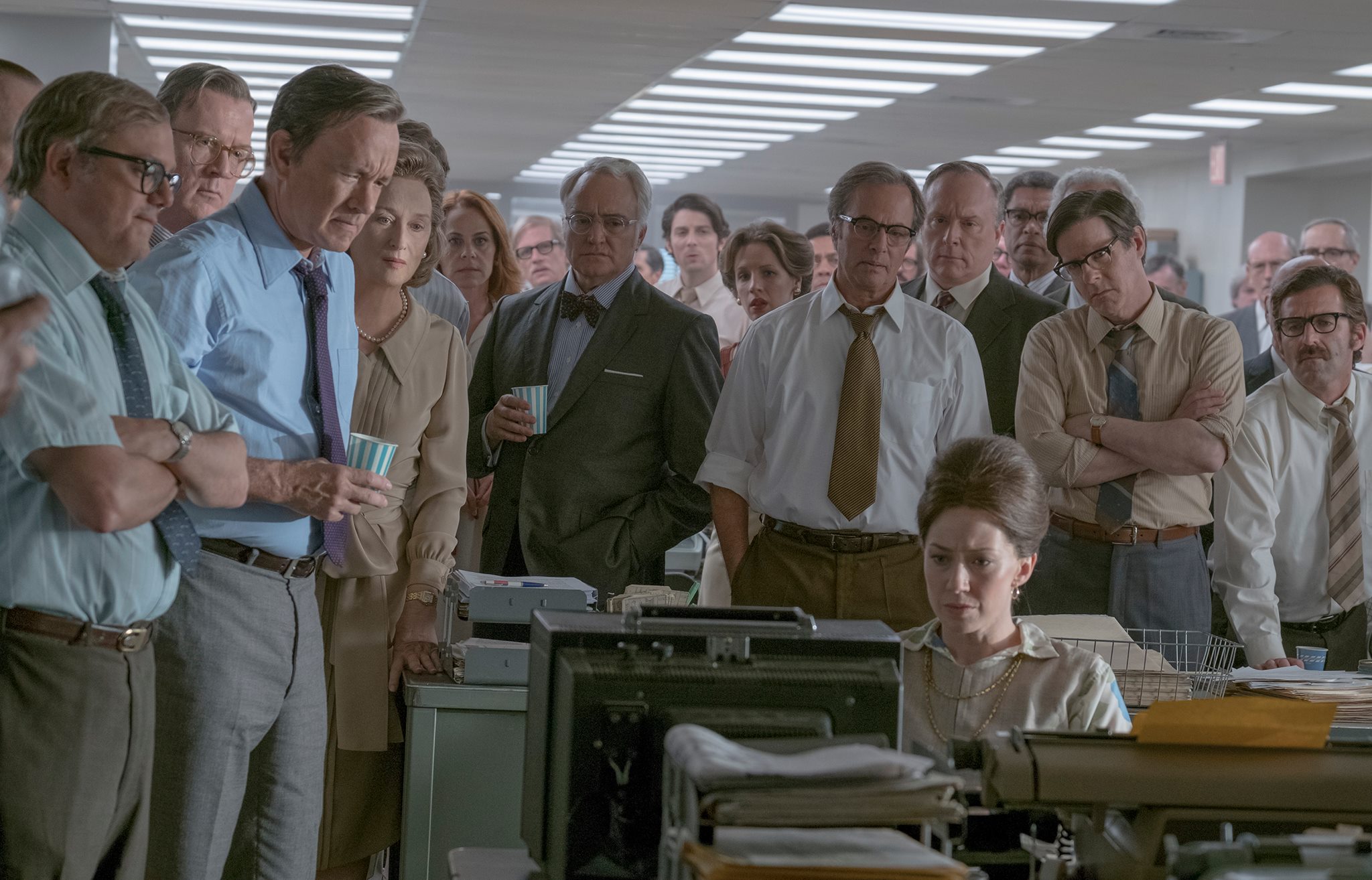'The Post' reminds us attacks on freedom of the press are not new

Image from “The Post” from Facebook.
To commemorate a great 2017, I wanted this installment to focus on something that really epitomized the past year. I was having a tough time tying up the past 365 days, and then it hit me in the face: The Fake News with Ted Nelms (appropriately staring Ed Helms) was set to premiere on Comedy Central.
In 2017, “fake news” became so engrained in our current culture that it found its way to a prime-time podium.
“Fake news” refers to stories published for the purpose of misleading the audience, usually with malevolence in mind. The expansion of the world wide web and the proliferation of electronic “news” outlets has created an environment where the line between fact and falsehood is increasingly more difficult to separate.
The Comedy Central show is only a satire, but there is no denying misinformation has become an issue for many. For some in the government, though, it has also become an excuse as well.
“It’s nothing but fake news.” That statement has become quite the scapegoat in Washington this past year. Members of the current administration use the rally cry to attack what they perceive as false or purposely misleading news stories. How quickly the roles are reversed. The Post (an upcoming motion picture directed by Steven Spielberg) takes its audience back to the 1970s when freedom of press and the right of the government to disseminate “fake news” clashed head-on in a battle over the First Amendment.
THE VIETNAM WAR AND A DIRTY LITTLE SECRET
Spielberg assembled a cast that includes Meryl Streep and Tom Hanks for his latest motion picture. The title refers to The Washington Post, with Streep portraying its publisher, Katharine Graham, and Hanks in the role of its editor, Ben Bradlee.
The story focuses on events leading up to a 1971 U.S. Supreme Court decision, but Spielberg begins with a scene set in the jungles of 1966-era Vietnam. Daniel Ellsberg, portrayed in the film by Matthew Rhys, is a civilian on a fact-finding mission for the RAND Corporation to assess the progress made by U.S. forces. Ellsberg eventually becomes disillusioned by false statements made to Congress and to the public—comments made by the president and other high-ranking members of the administration—about the success of the American war efforts.
The movie picks up with Ellsberg leaking documents revealing the truth (later known as the Pentagon Papers) to the New York Times and The Washington Post. That decision led to a battle in the U.S. Supreme Court between national security and the rights of the press under the First Amendment to the Constitution.
LEAKS TO THE MEDIA AND THE PUBLIC’S RIGHT TO KNOW
It’s been 46 years since the New York Times and the Washington Post published pieces based on the information contained in the Pentagon Papers. An injunction obtained by the government stopped further publication by the Times. The Post made a decision to ignore the injunction against the Times, publishing its own stories until it too was stopped by the courts.
However, the U.S. Supreme Court intervened with its decision in New York Times Co. v. United States, a case decided in opposition of the government’s efforts to halt publication and free press. The case stands for the legal principle that prior restraint of the press’s ability to report the news requires the government to carry a heavy burden before it establishes justification for such action.
Some of the justices wrote concurring opinions. At least one of them, Justice Hugo Black, referred to the government’s attempts to stop leaked documents from being published as prior restraint and censorship. Justice Black wrote: “I believe that every moment’s continuance of the injunctions against these newspapers amounts to a flagrant, indefensible, and continuing violation of the First Amendment.”
IMPACT OF THE PENTAGON PAPERS CASE TODAY
In reviewing the effect of the Pentagon Papers case on journalism in the 21st century, the New York Times referenced stories based upon leaked information subsequent to the Supreme Court decision. As a result of the precedent, the abuse of prisoners by U.S. military personnel in Iraq, the routine government monitoring of U.S. citizens’ electronic communications, and other questionable activities by “the people in charge” have been reported to the public.
Wikileaks, Edward Snowden, and others accused of leaking classified documents to the media have been threatened with prosecution, but no administration has attempted to challenge the right of the press to publish stories based upon those leaks. It’s quite ironic the government can’t control what it refers to as “fake news” because of a lawsuit it filed to keep credible outlets from exposing “fake news” that was, in effect, promulgated by the government itself in the first place.
THE TENUOUS RELATIONSHIP BETWEEN THE PRESS AND GOVERNMENT
The year 2017 showed the current administration’s increasingly public attacks on media outlets as purveyors of “fake news” and propaganda. Still, the administration has not attempted to revisit the government strategy that failed back in 1971. At least for the moment, the legal victory won by the press and the people remains the law of the land. God help us all if and when that changes.
Happy 2017, everyone. Best wishes for the new year and beyond.
Corrects word in last paragraph at 8:50 a.m.

Adam Banner
Adam R. Banner is the founder and lead attorney at the Oklahoma Legal Group, a criminal defense law firm in Oklahoma City. Mr. Banner’s practice focuses solely on state and federal criminal defense. He represents the accused against allegations of sex crimes, violent crimes, drug crimes, and white collar crimes.
The study of law isn’t for everyone, yet its practice and procedure seems to permeate pop culture at an increasing rate. This column is about the intersection of law and pop culture in an attempt to separate the real from the ridiculous.



